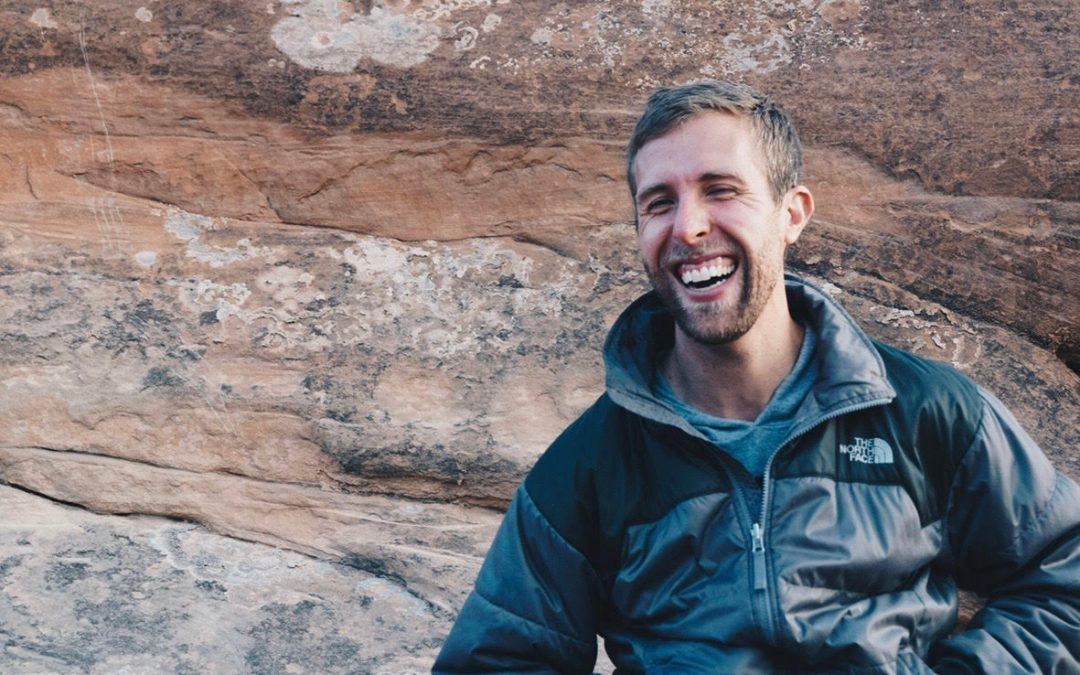Dr. Wes Amberge, MD
Colorado West Emergency Physicians
Dr. Wes Amberge— a managing partner at Colorado West Emergency Physicians and an emergency doctor at St. Mary’s Emergency Department—describes emergency medicine in simple terms: “We deal with the first 15 minutes of every specialty in terms of emergencies. You have to know how to handle a stroke, a gunshot wound, an amputation, and a child with a rash. Our work can be high stress, fast paced, and chaotic at a second’s notice, which requires us to be able to turn off and turn on quickly.”
Unlike most medical professionals who are very specialized in their line of work and focus on a part of the body, emergency doctors specialize in a phase of care that requires breadth to quickly assess, diagnose, and treat a patient.
During our interview, it quickly became apparent that Dr. Amberge’s ability to distill complicated medical practices and terms into plain speak is an intentional pursuit. While at Yale School of Medicine, he noticed “a big disconnect” between how hospital executives and clinicians communicated and so he broadened his studies to include operations with a 5-year combined degree in business administration (MBA) along with a medical degree (MD).
After finishing his MBA, he went back to the clinical side of his education and completed his 3-year residency at Vanderbilt in emergency medicine. Upon completion, he signed up with a company who staffed ERs. “They would send a team of emergency physicians to a hospital experiencing shortages, fly us in to staff them, and then fly us home.” Through that experience he realized he wanted to practice “big city medicine with a rural feel” and so he made the leap and accepted a job with Colorado West Emergency Physicians (CWEP) staffing the E.D. at St. Mary’s where he currently practices.
“We deal with the first 15 minutes of every specialty in terms of emergencies. You have to know how to handle a stroke, a gunshot wound, an amputation, and a child with a rash. Our work can be high stress, fast paced, and chaotic at a second’s notice, which requires us to be able to turn off and turn on quickly.”
In 2019, Dr. Amberge became a managing partner at CWEP where he is able apply his MBA handling the operations, finances, human resources, and hiring for the group while practicing medicine in the E.R.
Colorado West Emergency Physicians has a team of 19 emergency doctors who staff St. Mary’s Emergency Room, a Level II Trauma Center. As the main referral center for western Colorado and eastern Utah and a main referral center for heart attacks and strokes, St. Mary’s Emergency Room sees all major local traumas, those transferred from surrounding rural hospitals, and “scene flights”—helicopter flights directly from the scene of major accidents. They also take transfers locally from Community Hospital, Colorado Canyons, the Grand Junction VA as the largest and highest designated trauma center in the area.
As an ER doc, you have to operate and do well under pressure. The pressure is part of the job, but it’s also what leads to one of the highest burnout rates in medicine,” explains Dr. Amberge.
As Dr. Amberge and his partner Dr. Bill Hilty manage the fast-paced, high stress nature of their jobs while staffing the largest trauma center in the region, they have also been thoughtful to anchor work-life balance at the foundation of their practice for their entire group. This is an intentional decision to counter the high burnout rate with time off.
When asked how he finds balance and copes with the stressors of the Emergency Department, without thinking Dr. Amberge replies: “I’ve got a great wife and two good dogs,” and then he introduces Tenzing his husky named after Tenzing Norgay who summited Mt. Everest with Sir Edmund Hillary. He continues, “I love the outdoors, love to mountain bike and hike, trail run and back county ski. I do little bit of everything, which kind of fits the ER mentality.”

The ER mentality practically applied in the Emergency Department may very likely look like this scenario: Dr. Amberge in a room running a code, doing CPR, unsure if the patient may live or die, and then leaving that room, taking a deep breath and going into a room a couple doors down to find a worried mother whose child needs stitches. Dr. Amberge recounts his ability to switch gears: “I have to leave everything I just did down the hall to give the patient I’m currently with my sincere consideration. It’s hard to do, but we do it because it’s a benefit to our patients.”
He describes the most rewarding part of his work and quickly distills his thoughts into plain speak again: “I try to spend a lot of time explaining things to my patients. It’s challenging because medicine is so jargon-filled, so cloudy. It’s really important to me to make sure it’s clear and to see that my patients are satisfied with their care. That’s the most rewarding part, when patients are happy with the quality of care they receive.”

